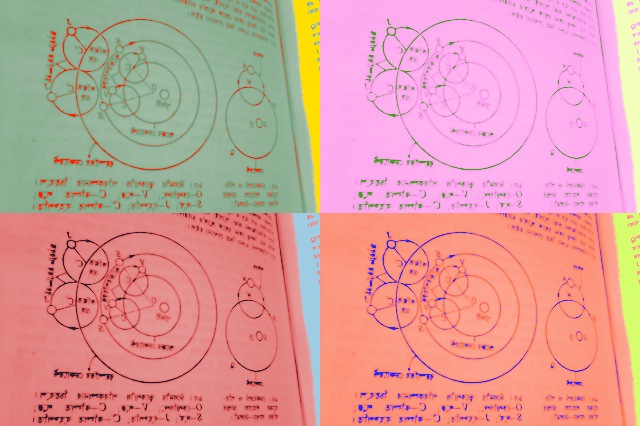The Intermedia Research Studio is engaged in a collective program of research carried out through several different kinds of events and ongoing probes.
The concept of intermediation is central to the studio’s research and the roots of this problematic go back to the major social transformations that followed the fall of the British Empire, the rise of U.S. hegemony and to the consequent emergence of what the social theorist-artist Guy Debord called the “society of the spectacle”. The core of Debord’s argument entailed a brilliant interpretation of Marx’s account of commodity fetishism in relation to Keynesian and Fordist responses to the crises of late nineteenth century capitalist accumulation. Keynesian reforms entailed that the production of desire —and therefore the production of images— were from now on going to be integral to the processes of capital accumulation. Debord drew the lesson that in such a society of the spectacle, all ways people can negotiate the problem of belonging or not belonging to each other or to this or that institution was now going to be MEDIATED by the production of desire, images and the various new kinds of communication technologies that were rapidly appearing during the postwar boom.
The works of two Canadian communication theorists —Harold Innis and Marshall McLuhan— enable us to add an important refinement to the issues at hand here by arguing first that all technology is in one way or another communication technology and second that it makes no sense to study them in isolation because they constitute a media environment or a field of intermediation.
The next step in the emergence of this problematic is the wide range of subsequent historical and social transformations that all loosely and imprecisely have been designated by the term globalization. The main significance of this for the studio’s research is that these changes in the world has made apparent the inescapable contingency that any and all kinds of social scientific and humanistic research either explicitly or implicitly says something about the contingent processes of capitalist social reproduction.
Consequently, all kinds of research in the social sciences and humanities in some way or another then confront the issue of describing contradictions that people embody, inhabit and that make up the defining characteristics of our historical moment.
However, the prospect of describing contradictions raises all kinds of representational problems. How do you describe contradictions when, for example, ideological depoliticization makes contradictions disappear into thin air? How do you describe them since they are, on the one hand systemic, and on the other, never one but always a tangle of many? How do you represent contradictions when they intermediate the politics of belonging or not belonging. How do you describe contradictions when they are as affective as they are meaningful, as embodied as they are phantasmatic or prosthetic, when they are distributed through a space or a time between the visible and the intelligible? Lastly, how do you describe thickly, as the ethnographers among us say, contradictions when social contradictions are not reducible to logical ones since they involve temporalities and emplacements and dislocations?
These then are the very broad terms of the research problematic that the Intermedia Studio is currently pursuing. This research problematic is meant to provide an ongoing context of intermedia studies for students and faculty to collaborate in, interrogate, critique, deconstruct or displace through specific research probes.
Sourayan Mookerjea
Utopia Lab

The studio is primarily a place where people meet and collaborate and ideas clash and contend; where capacities and techniques are exchanged and enhanced.
The studio is much more than a cabinet of tech.
As a place of cooperation, the studio endeavours to constrain the institutional logic of competition.
As such the studio is a negative space where collaborators are invited to study, investigate, and prefigure passage ways through to some post-neoliberal university.



